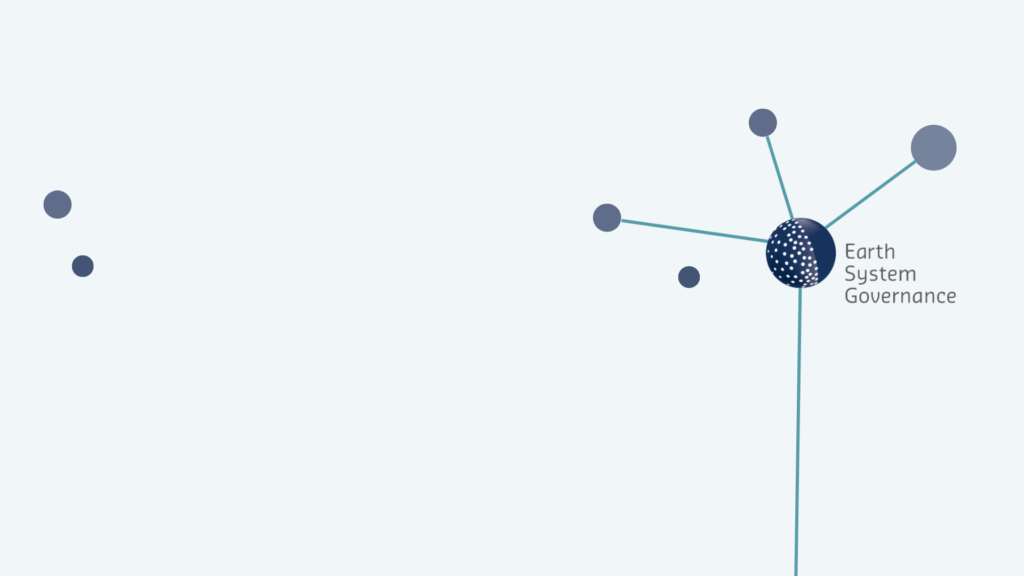On 6 December 2010 a forthcoming special issue of the journal Environmental Science & Policy on Governing and Implementing REDD+ has been presented at a side-event of the United Nations Climate Change Conference (COP 16 / CMP 6) in Cancun, Mexico.
This side event, organised by the Environmental Change Institute, University of Oxford, and the Tyndall Centre, showcased contributions from the forthcoming special issue on the ongoing debates around governance and implementation of REDD+. Using the earth system governance framework, this special issue advances knowledge of key issues related to the architecture of REDD+, such as measuring, reporting and verifying of emission reductions. It also highlights the agents of REDD+ and suggests ways of how the vast array of interests can be better aligned under REDD+. A further crucial issue is adaptiveness, i.e., how social learning and the generation of knowledge can be facilitated. The special issue examines sources of accountability and legitimacy in the context of the ever-growing engagement by the private sector and civil society, and finally it addresses moral and ethical questions around allocation and access regarding the REDD+ benefits, such as tenure and management rights. The event attracted some 200 national delegates, practitioners and researchers.
Summary of presentations:
Heike Schroeder (University of Oxford; and Earth System Governance Scientific Steering Committee)
“Governing and Implementing REDD+”
Our special issue of Environmental Science & Policy seeks to understand the governance and implementation dimensions of REDD+ at international, national and local levels. We use the earth system governance framework to illustrate the key governance issues underlying REDD+ and highlight three main pillars for a future research agenda (1) the politics of REDD+ in negotiations; (2) the interplay between REDD+ policies and measures in land-use related processes; (3) the examination of the environmental and socio-economic outcomes of REDD+ activities that integrate locally informed monitoring, reporting and verification with robust counterfactual assessment methods.
See for more the lead article of the journal issue → here.
Margaret Skutsch (Universidad Autonoma de Mexico) and Ben Vickers (RECOFTC)
“Alternative models for carbon payments to communities under REDD+; a comparison using the Polis model of actor inducements”
Many tropical developing countries are contemplating a form of payments for environmental services to reward communities involved in community forest management, yet the implications of different systems of payment to communities have scarcely been considered. We compare three payment models, which account for international purchasers of carbon credits, national policy makers, agencies and local communities, and interactions between them. We conclude that payments based on carbon may not induce communities to sequester carbon. We propose a system based on paying communities to monitor their carbon stock, combined with appropriate management, or a bonus for carbon performance.
Gillian Cerbu (University of Freiburg)
“Locating REDD: A global survey and analysis of REDD readiness and demonstration activities”
We undertook a global survey of REDD activities to better understand their intensity and geographic spread. Our results show that there were at least 79 REDD readiness activities and 100 REDD demonstration activities, the majority of which are in Indonesia and Brazil, countries widely agreed to have the greatest potential for reducing forest-based emissions. We found five characteristics which heavily determine the number of REDD demonstration projects. The results reveal the importance of biodiversity and good governance and the relative unimportance of human need and opportunity cost of land. The results also reveal a bias against Africa and toward Latin America. Unless this pattern is countered, REDD and REDD+ may have geographic biases that undermine its broad political support.
Leo Peskett (ODI)
“Institutional approaches for carbon financing in the forest sector: learning lessons for REDD+ from forest carbon projects in Uganda”
With momentum building around the implementation of REDD+ programmes and projects, questions surrounding the appropriate structuring of institutions are becoming increasingly important. We examine how the variations in the institutional arrangements related to the carbon finance aspects of projects affect the opportunities for poor rural producers involved, or those living in the vicinity of projects. Evidence is drawn from a review of three forest carbon projects in Uganda. Three aspects of project institutions are discussed; actors, rules and links to existing external institutions. The findings suggest that supporting such projects with carbon finance can have some positive impacts on opportunities through improved monitoring, but that considerable progress needs to be made in balancing the interests of project financers with those of the communities involved and improving policy coordination with existing institutions external to projects. We suggest that these lessons are particularly transferable to the growing number of REDD+ approaches that are strongly performance based or funded through carbon markets, and implemented through direct payment systems between buyers and local producer groups or individuals.
Constance McDermott (University of Oxford)
“Implementing REDD+: lessons from analysis of forest governance”
Experience from earlier forest-related initiatives, and from recent research in environmental and forest governance, suggest ways forward for REDD+ even in the absence of a post-2012 climate agreement. Comparative studies reveal that forest-rich developing countries already have formal forest management requirements that are at least as demanding as those of industrialised countries. Poor implementation of these requirements is the key constraint to achieving forest conservation and sustainable forest management. In addition, mechanisms that focus on enabling already-agreed upon requirements that draw lessons from forest certification and payment schemes are most likely to deliver outcomes for forests and local stakeholders. These lessons suggest that progress can be made towards the REDD+ outcomes envisaged by the Copenhagen Accord.
For further information please contact Heike Schroeder, University of Oxford and the Tyndall Centre: heike.schroeder@eci.ox.ac.uk
Presenters (left to right): Heike Schroeder (Oxford), Margaret Skutsch (UNAM), Ben Vickers (RECOFTC), Connie McDermott (Oxford), Gillian Cerbu (Freiburg) and Leo Peskett (ODI)


